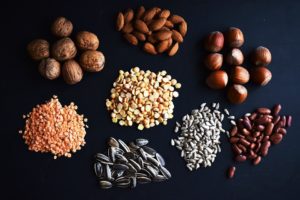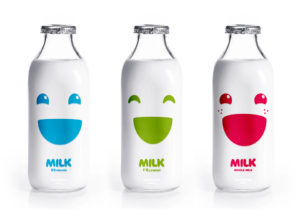-
Vegetarian Sources of Protein
23.01.2018There are quite a few misnomers about food that make the rounds every year. Some of them are age-old myths and fads that refuse to die. Others are simply a result of misinformation, propaganda, or ignorance.
In the age of digital technology, information is seldom filtered, thus leading to erroneous messages reaching far and wide. Nutrition often bears the brunt of these half-truths, impeding its progress in the realm of general health and wellness.
Vegetarianism is one such philosophy that is regularly faced with misnomers about its effectiveness. Does a vegetarian diet contain enough protein? Is there a vegetable that compares to red meat with respect to protein content? Will this diet suffice?
It’s about time these myths were put to rest.
Here are four vegetarian sources of protein that match, if not outdo their non-vegetarian counterparts.
1) Broccoli
Per calorie, broccoli has more protein than beef which is about 4.5 grams per 30 calories. In addition, it is also packed with amino acids, fiber, and Vitamin B6 to improve your mood. What’s more? Broccoli has been found to be very effective in the fight against cancer.
2) Legumes/Daal
Chickpeas, lentils, soybean, and kidney beans form a staple of most Indian diets across the country. Incidentally, they are rich in protein, fibre, iron, phosphorous, and B Vitamins. A half cup of the above ingredients contain roughly 7-9 grams of protein each and when combined with rice, form a complete protein, providing your body with essential amino acids.
3) Healthy Nuts
Almonds or cashews are packed with plant-based protein and seamlessly slip into the architecture of Indian diets. 23 whole almonds alone contain more than 6 grams of protein, while a similar quantity of cashews holds up to 5 grams of protein. Nuts are also a great source of heart-healthy fats, dietary fibre, and Vitamin E.
4) Milk
Milk is yet another source of protein that is easily available and constitutes a significant portion of the Indian diet. Casein, a slow-release protein, constitutes one of the many benefits of consuming milk on a regular basis. Additionally, it contains calcium, and Vitamin D to give you strong bones and teeth and negate chances of osteoporosis.
Eating healthy isn’t as hard as commonly advertised. If you’re a vegetarian or are considering become one, don’t go by common adages that slate this lifestyle for ‘lacking nutritional benefits’ of a non-vegetarian diet. There are ample vegetarian sources for healthy protein that keep you energized and active.
While many vegetarian sources of protein, as listed above, are good sources of protein, it is noted that apart from milk, all of them are incomplete proteins i.e. they lack all the essential amino acids required. Therefore, blending these different sources of vegetarian proteins is highly recommended to arrive at a complete set of essential amino acids. Furthermore, vegetarian sources of protein apart from milk have relatively low digestibility. Therefore, it is important to check their bio-availability and consume them in higher proportions in order to meet your needs.
Latest Blog Post
- Sugary Drinks Linked to a Higher Cancer Risk
- The Latest Research on Protein and Muscle-Building
- 27 Health and Nutrition Tips That Are Actually Evidence-Based
- Tall order: More to good growth in toddlers than just measurements
- Millions of cardiovascular deaths attributed to not eating enough fruits and vegetables

